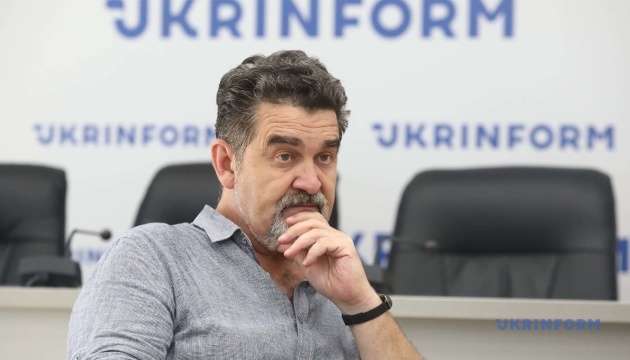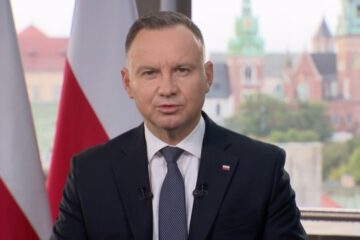After a certain “seasonal aggravation” on the eve of the Hasidic pilgrimage to Uman, relations between Ukraine and Israel seem to have reached a relative lull. However, as the saying goes, the residue remains.
Ukrinform asked the director of the Center for Middle East Studies, Ihor Semyvolos, to help us understand why this happened. We talked about the arguments of the parties, the conditions under which Ukraine and Israel can become friends, what the participation of the head of the Mossad in the meeting between Zelensky and Netanyahu in New York means, and much more.
THERE WAS NO TIME IN UKRAINIAN-ISRAELI RELATIONS WHEN WE HAD NO CLAIMS AGAINST EACH OTHER
– Mr. Ihor, over the past month, we have often heard that relations between Ukraine and Israel have deteriorated to a critical level. When were they at their best, in your opinion?
– I think that in fact we have already moved away from this critical level. That is, there are no longer the same problems that existed, say, a month ago, when the suspension of the visa-free regime was discussed and the issue of the Hasidim coming to Uman for a pilgrimage was acute.
We can say that after the meeting between Netanyahu and Zelensky on the sidelines of the UN General Assembly, the situation has, in principle, improved.
– But why did it deteriorate before that?
– I would say that this is a complex issue. As for when we had good relations…
They were normal when neither Israel nor Ukraine made any additional demands on each other.
There are issues on which we have always had disputes. For example, the Palestinian issue and the occupied territories in general. It became even more acute in 2014 after the occupation and illegal annexation of Crimea by Russia. Accordingly, we could not vote against UN resolutions on the Israeli occupation of the Palestinian territories, and Israel perceived this as an unfriendly policy of Ukraine.
Ukrainians have been explaining this situation for a long time, but it was probably not fully understood in Israel, and many questions remain around it.
On the other hand, we sought closer cooperation with the Israeli military-industrial complex, and we constantly encountered obstacles on this path. Since 1990, we wanted to implement a number of projects with the Israelis, but they failed, largely due to Russian pressure. It was already there, although perhaps not so obvious.
There was also a difficult period when Israel put a lot of pressure on us to stop cooperating with Iran over the Bushehr nuclear power plant. The Israelis were quite active together with the Americans at that time, with delegations coming to us and putting political pressure on the Ukrainian leadership. As a result, it agreed to withdraw from the project, but in return, it did not receive what it had been promised. (In March 1998, after numerous appeals from the United States and Israel, and a visit to Ukraine by U.S. Secretary of State Madeleine Albright, Leonid Kuchma announced Ukraine’s refusal to participate in the Bushehr project in exchange for participation in an initiative to cooperate with the United States in the field of high technology. – Author)
This is an old story, but there were other problems. For example, the border crossing at Ben Gurion Airport was not a problem that arose today. The Israeli bitachon (Ministry of State Security – author) was always scrutinizing Ukrainians, suspecting some of them of coming to earn money illegally. This issue was raised several times, but never fully resolved. It has become most evident recently, and when many Ukrainians began to be held at the airport for long periods of time and some were deported, no one could stand it any longer.
– So we did not have a period of active cooperation with Israel?
– I am not aware of such cooperation that would indicate any major breakthrough.
There have been periods of rather dynamic relations, but I cannot say that there were times in Ukrainian-Israeli relations when we had no claims to each other at all.
For example, for a long time we were constantly criticized by Israel for alleged anti-Semitism. The previous Israeli ambassador (Joel Lyon, Israeli ambassador to Ukraine in 2018-2021) did practically nothing else but criticize Ukraine – he didn’t like one street or stadium name or another, or he received a report from the Israeli government that recorded an increase in anti-Semitism, although all monitoring groups say that there is no such thing.
This Israeli policy is based on stereotypes and standard approaches to Ukraine as a country that is not important in terms of political and economic influence in the world. They say that there is Russia, with which we need to have good relations, and if we criticize Ukraine and play this anti-Semitic card, then perhaps this will improve our relations with Russia or at least send a certain signal to the Russians.
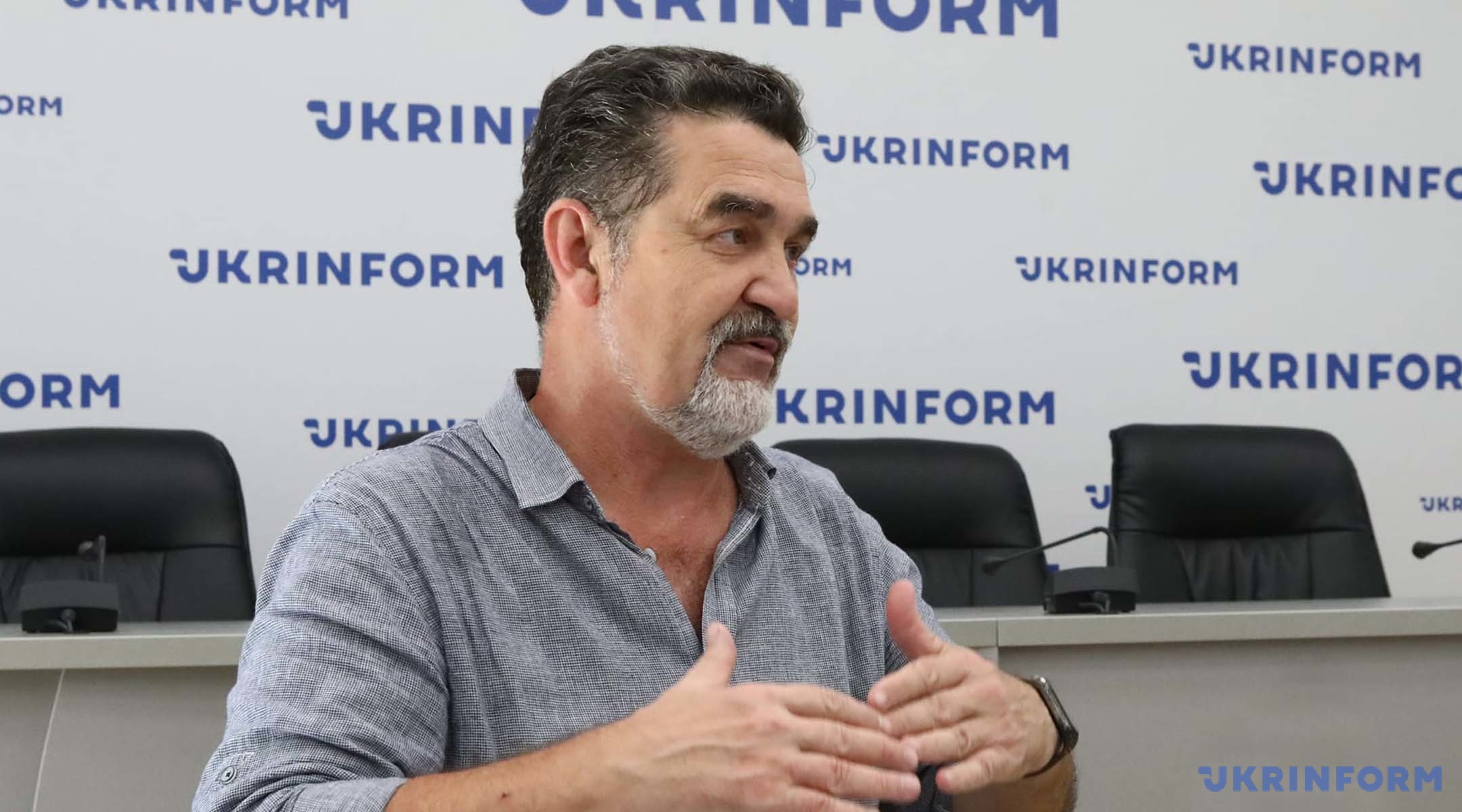
IT WAS IMPORTANT TO US THAT ISRAEL DID NOT TAKE DISCRIMINATORY MEASURES AGAINST UKRAINIANS.
– So, are the statements about the deterioration of relations between Ukraine and Israel to a critical level an exaggeration?
– Well, there is always room for improvement.
In diplomacy, you can make demarches, and why not? If we are not satisfied with the level of relations, if we believe that our partners are behaving unfairly or not fulfilling their obligations, or their actions do not correspond to their statements, why should we keep silent about it?
Another question is where we can speak out. These can be public or behind the scenes statements, or at the level of negotiations or lobbying groups. That is, it is up to the country to choose how it positions itself and how it enters the conflict.
The fact that it was a conflict is obvious, but in this situation, I think Ukraine had every chance to resolve it in its favor.
What was important to us? For Israel not to take discriminatory measures against Ukrainians, for the appropriate services to be continued for Ukrainians who are refugees there, because there was a problem with this, and for us to start some kind of more fruitful dialogue about the possibilities of interaction, because everything we had seen before was just words.
– And how acceptable, in your opinion, were the statements by the Ukrainian side about its intention to suspend the visa-free agreement or the reports of concern by the Ukrainian authorities about the information about Israel’s possible transfer of secret data from the Ramstein meetings to Russia, which offended the Israelis?
– History will judge what is acceptable and what is not.
And it is known that the Israelis at Ramstein took a rather ambiguous position. At least at the beginning of this process, their main task was to make sure that Israeli weapons did not get into Ukraine. This is a little bit inconsistent with the goals stated when Ramstein was launched. Why should we turn a blind eye to this and say that it did not happen? These are obvious things.
Now about the Hasidim. Netanyahu’s coalition government includes religious parties. Accordingly, the prime minister had to reach an agreement with Ukrainians so that the Hasidim could come to Uman. Because just as the Israelis say that for security reasons we do not allow anyone in and do not discuss this, Ukraine could not allow anyone in for the same security reasons. So if you want to negotiate, let’s negotiate.
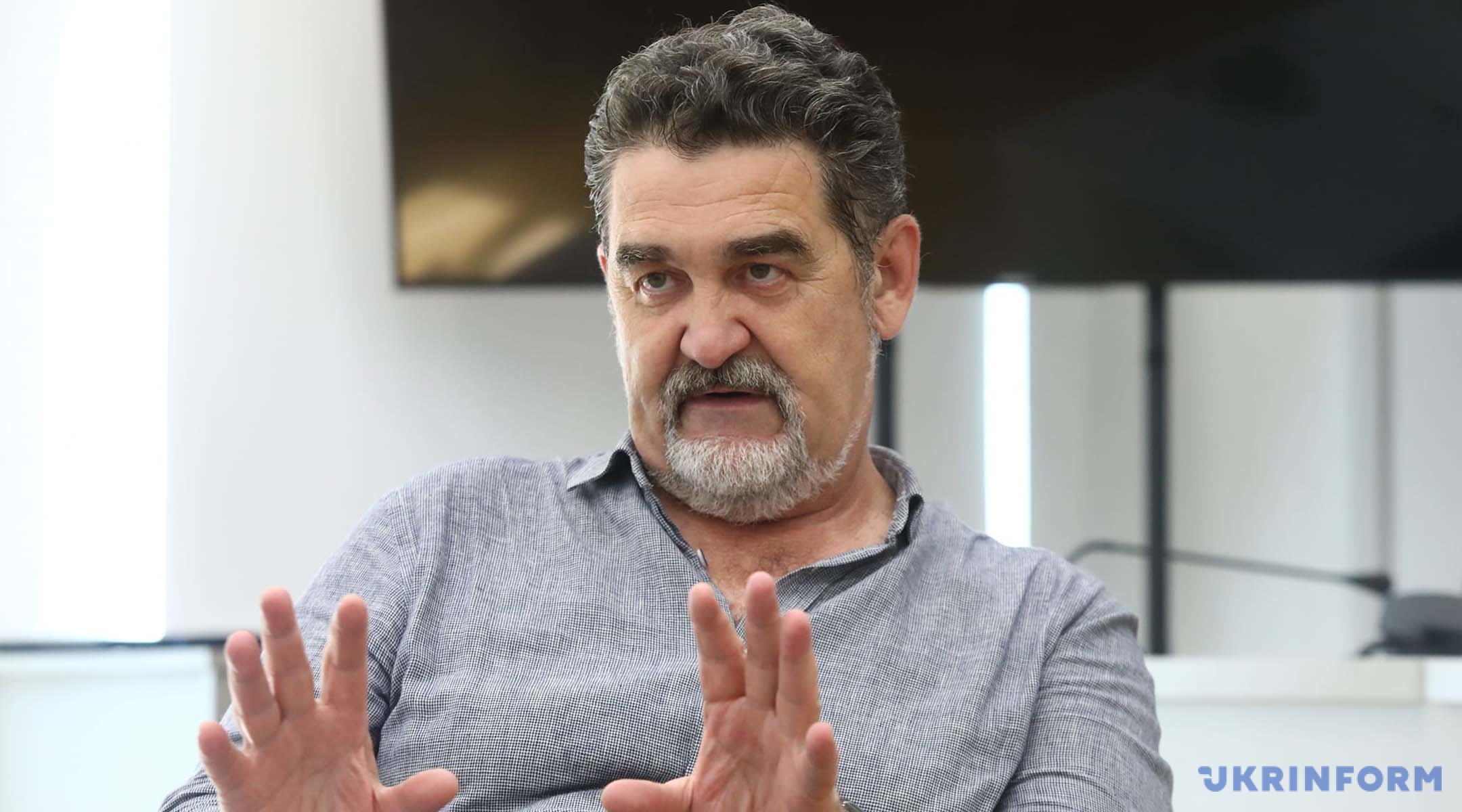
– In terms of improving relations, some hopes were pinned on the meeting between President Zelensky and Prime Minister Netanyahu in New York. Did they come true?
– In fact, I didn’t see any results there – in fact, there are none at all. And there are no comments around this.
– How come? Israeli media called the meeting “serious and comprehensive.”
– So what? What was the result, apart from the fact that it was serious and comprehensive?
I am constantly commenting on Israeli issues and closely watching for something that could be “touched.” There is nothing!
– How did you assess the participation of Mossad chief David Barnea in this meeting?
– It’s good, in principle, that he was there. I hope that the parties at least exchanged views on Iran, that this was discussed.
– Isn’t this some kind of signal of warming relations and intelligence cooperation?
– No, it is not.
IT IS MORE PROFITABLE FOR IRAN TO BALANCE, BUT CIRCUMSTANCES PUSH IT TOWARDS RUSSIA
– Barnea said earlier that Iran intends to transfer short- and long-range missiles to Russia in addition to the UAVs that Tehran sold to Moscow for the war in Ukraine. At the same time, he said, Israel fears that the Russians will give the Iranians modern weapons that could jeopardize its existence. What do you think this is about? And who in this Iran-Russia pair has more advanced technologies and poses a greater threat to Ukraine and the world?
– Of course, the one with nuclear weapons, i.e. Russia, poses a greater threat. It has some technologies, especially in the nuclear sphere, that Iran definitely does not have.
And Iran has missiles and drones-they have built a lot of them, and in this sense it is dangerous, because there are really a lot of them.
I don’t know the exact size of the Iranian arsenal, and no one can say, because most of it is underground, and in fact what we have seen is a small fraction.
But it is clear that they are interested in striking Israel. They can only reach it with missiles, so they are doing everything to increase their range, to develop hypersonic missiles.
– But if Russia expects Iran to supply long-range missiles, it means that Iran has them.
– Yes. There are various stories that this deal was almost implemented, and the Israelis report that it was stopped.
As they say, there are big questions around these allegations, because usually the intelligence services like to attribute to themselves some failures of the two sides in the agreement and say, “It didn’t work out because of us”.
So I’m not going to say whether or not Israeli intelligence had any role in disrupting this agreement. But it is said that both sides [Iran and Russia] had already negotiated missiles, but failed to reach an agreement.
I assume that at the preliminary stage – because now everyone has started talking about October 18, when the UN ban on the sale of Iranian arms expires – some of the agreements could not be reached because Iran itself has not yet made a clear decision to enter the war in Europe.
For them, this is still a long way off, and a large part of the Iranian establishment definitely does not see the point.
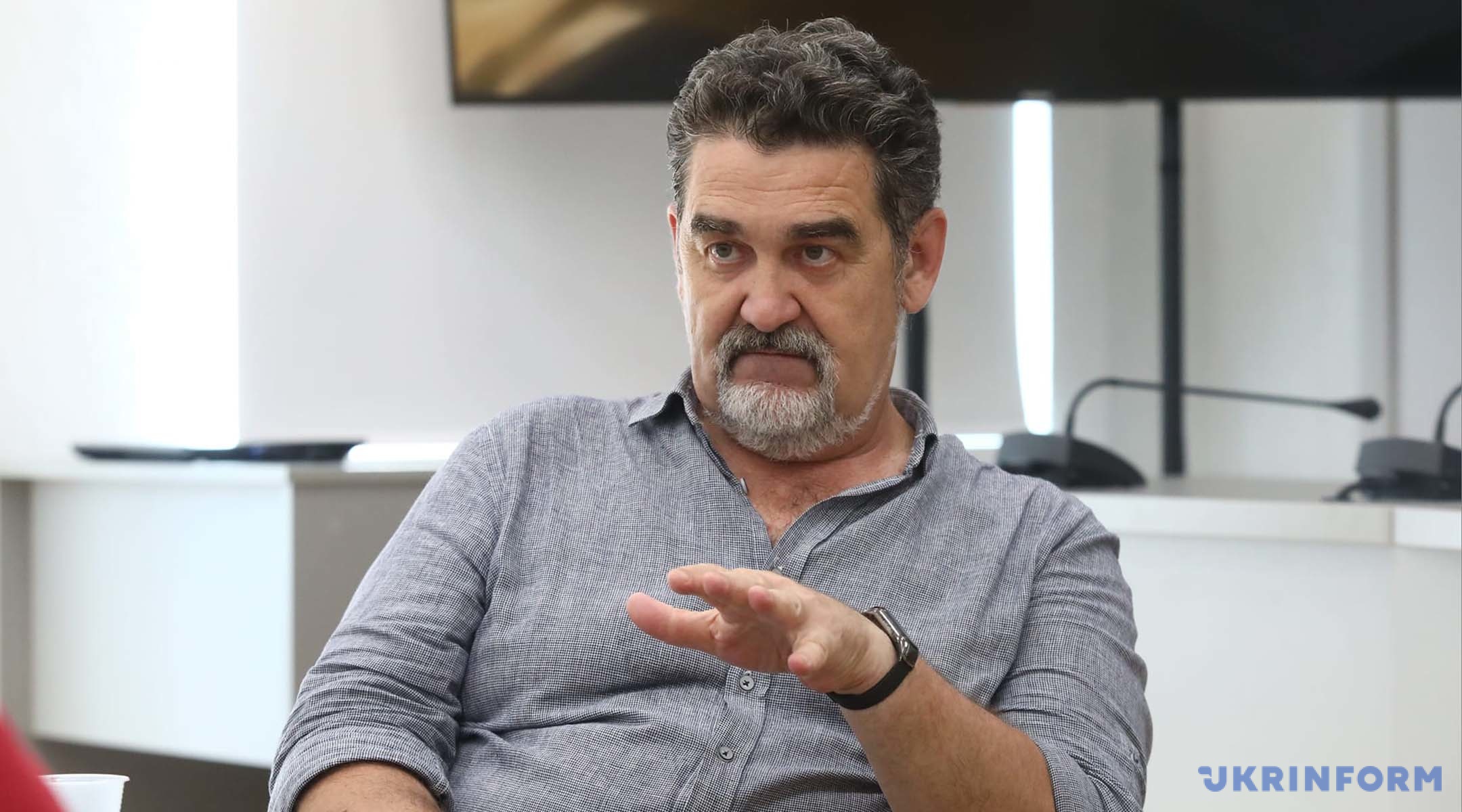
– Could the recent agreement between the United States and Iran to release five Americans in exchange for the unfreezing of $6 billion from Iran’s frozen accounts have had an impact on the failure of the agreements with Russia?
– No, because it was about specific people and specific goals.
In general, the negotiation process with the Americans may have an impact, because, in any case, the Iranians are interested in lifting sanctions because they cannot fully realize the potential they have.
– So Iran is still leaning toward cooperation with the United States or with Russia?
– Iran is definitely not leaning towards the United States – it is more profitable for it to balance, like the rest of the Global South. But the circumstances are pushing it toward Russia, and the political group that currently rules Iran is more likely to cooperate with Russia.
Their main task is the survival of the regime, and for this they need resources. And they can only get quick money, not Chinese investments that will go into the economy and after a while will be able to launch some industries, from Russia. That is why they are inclined to cooperate with Russia.
– So the easing of Western sanctions would not be able to stop Iran’s cooperation with Russia?
– I think it would be unlikely.
WE DO NOT HIDE OUR DISSATISFACTION WITH ISRAELI POLICY TOWARDS RUSSIA
– Let’s get back to Israel. President Zelensky has repeatedly stated that Israel should choose a specific side in the war in Ukraine. Instead, Israel cites the difficult security situation in the region, its special relationship with Russia, and the protection of the Jewish community in Russia. At the same time, these relations are becoming more and more “special”: the trade turnover between Russia and Israel is growing, tourist flows from Russia to Israel are also increasing, the Foreign Ministries of both countries are holding political consultations, and the countries have recently signed an intergovernmental agreement on joint film production. Does this mean that Israel has already chosen a side?
– The Israelis do not think so.
– What do we think?
– We can think any way we want. The question here is what will be more useful to us. We are already hurting Israel enough with our statements. That is, we do not hide our dissatisfaction with Israeli policy toward Russia.
In fact, Bibi (Netanyahu) is ready for any compromises within the country and agreements with all right-wing and religious politicians for the sake of power. He is interested in this in the first place, and the rest is irrelevant. Where we can, as they say, go a little against the grain and show him that it will be bad for his power, he responds, but not to the rest.
– But opinion polls show that Israeli society seems to be on the side of Ukraine. Does Netanyahu depend on the opinion of the Israeli street?
– No, he does not.
Israel is different, there are many immigrants from the Soviet Union, the so-called Russian Aliyah. If we talk about all the waves of this aliyah, the overwhelming majority, about 60 to 40 percent, supports Ukraine. That is, 40 percent can also support Russians who are actively working there and have always worked through various friendship societies and cultural projects.
It’s only now that pro-Ukrainian activists are trying to put pressure on the government to stop all these Putinoids from coming. Before, there were a lot of them.
Sabras, those who were born in Israel and for whom Ukraine is another planet, perceive information indirectly. The historical narrative they heard at school is important to them. There are Bohdan Khmelnytsky, Maksym Zalizniak, Ivan Honta, Petliura, and Bandera. That is, the list of “enemies of the Jewish people” is long.
A significant majority of those who support Ukraine are in the other camp and are mostly opposed to Netanyahu.
Among the members of the “Likud” [Israel’s center-right political party] there are people who support Ukraine, but they are few in number.
IN THE ISSUE OF PUTIN’S ANTI-SEMITISM, THE MAIN THING IS ISRAEL’S OFFICIAL REACTION, AND IT OFTEN DOES NOT EXIST
– Ukraine is still waiting for the early warning system for missile and drone launches promised by Israel back in February. The testing of its part was expected at the end of September, but… In your opinion, is this a deliberate delay or are there any insurmountable obstacles?
– I hope that they will see this through. Of course, it’s easier to say that it’s a deliberate delay, but I don’t know about that.
I assume that the world-famous Israeli bureaucracy plays a role here, when a piece of paper needs to be transferred from one office to another, and no one is in a hurry.
I know that the Israelis have now signed a large contract with the Germans and are providing them with very powerful air defense systems.
Israel will undoubtedly choose a particular side, but on the last day of the war. It will then support Ukraine and say that it also wants to participate in the reconstruction and has the money to do so.
– Israel has expressed dissatisfaction with the overly harsh and public behavior of the Ukrainian side, Ukraine’s voting in the UN on resolutions on the Palestinian territories occupied by Israel, and the fact that the Ukrainian embassy has not yet been moved from Tel Aviv to Jerusalem. Do you see any room for compromise on the part of Ukraine to improve relations with Israel?
– No, I don’t. First, we do not recognize Jerusalem as the capital of Israel. And, secondly, the question arises: what can Israel really offer us in return? Good relations? More of our tourists in Israel? Will they not keep Ukrainians at the airport? Maybe it will transfer technologies to us? No. Then what’s the point? The Jewish lobby? We can negotiate with him ourselves. Why should we have Israel, which has problems with the Jewish diaspora, as an intermediary?
– You have already mentioned that Israel is very sensitive to the issue of anti-Semitism and reacts extremely sharply to the slightest manifestation of it in Ukraine. At the same time, it is in no hurry to officially respond to Putin’s anti-Semitic statements against Zelensky. How do you think this difference in approach can be explained?
– There is a joke when a rabbi is asked what to do when you are walking down the street on Saturday and see a wallet with money on the ground. And he said: “I’ll pray, and it will be Saturday all around me, but it will be Thursday next to me and the wallet.”
That is, when it is profitable, and the Israelis do not want to spoil relations with someone, they interpret the situation differently-that it is not anti-Semitism, that something else was meant.
Of course, there are independent monitoring groups that record all this as anti-Semitism, and it is clear that public opinion in Israel is different, and all these statements are also discussed, and there is no doubt that this is anti-Semitism. But the main question here is the official reaction, and it is often absent.
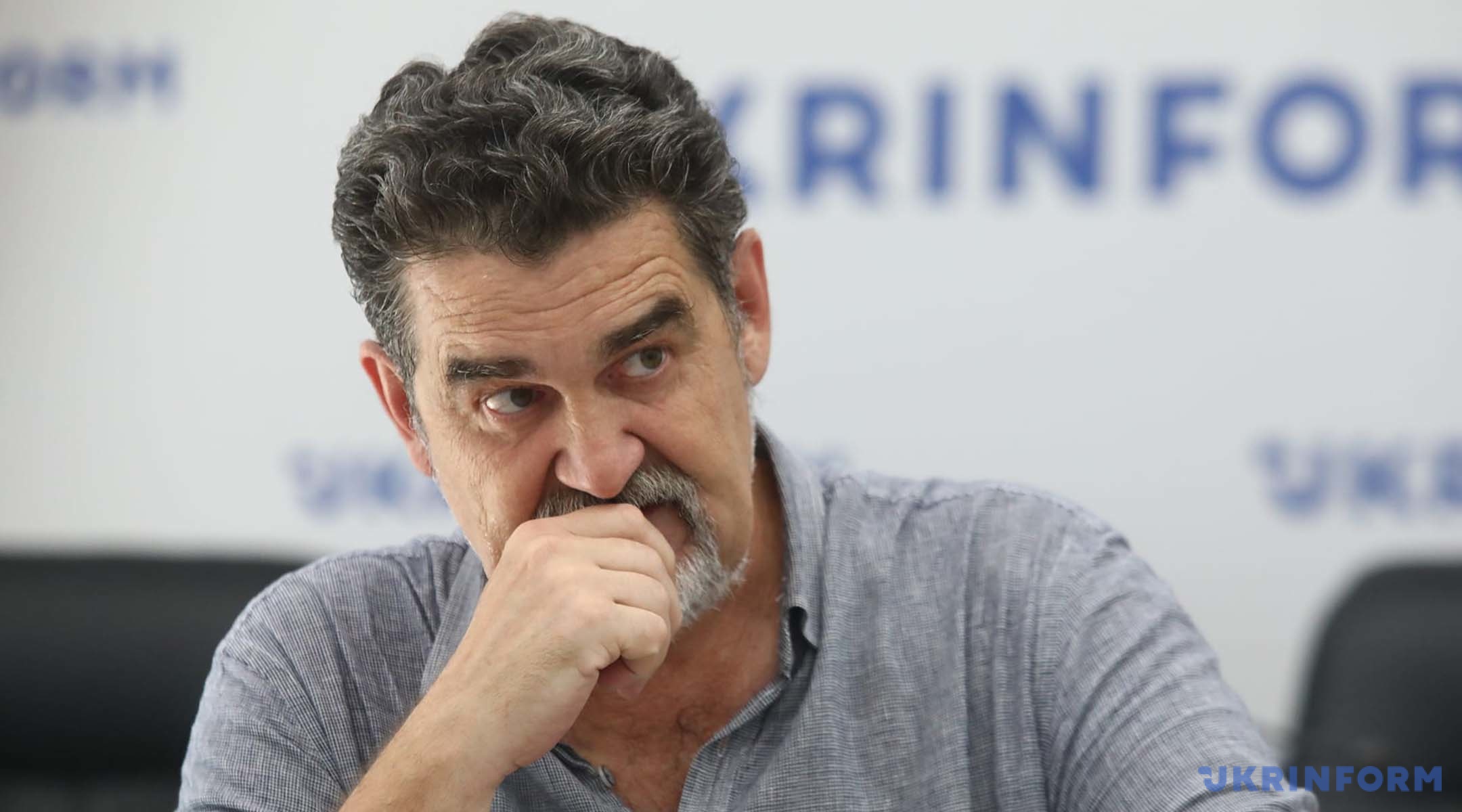
AN EXISTENTIAL WAR IS BEING WAGED AGAINST US, AND WE CANNOT CONDUCT FRUITLESS NEGOTIATIONS FOR A LONG TIME
– If you were the Ukrainian government, would you change anything in relations with Israel or would you let things continue as they are?
– It would be great if we could change something, but I just don’t know how to do it. An existential war is being waged against us, we are at war and we have needs. We can’t go on for a long time in fruitless negotiations with countries that, on the one hand, proclaim that they are on the right side of history, but on the other hand, do not demonstrate the behavior that corresponds to these words.
We do not have time to simply persuade the Israelis to react differently. This is a very serious country with serious intentions, serious power, and an experienced political class. Let them decide for themselves.
– President Zelensky said that people in Ukraine need to learn to live in confrontation, like Israel. How do you see this in practice? What Israeli experience would be most useful for Ukraine?
– This metaphor is false in the sense that it is misleading. Because when everyone says that Ukraine should be like Israel, you still need to understand the difference in these conflicts.
– And in terms of psychology, organization of life, and military training?
– When people say that Ukraine should be like Israel, they are pulling at our heartstrings, and this can create misunderstandings for us, for example, in the Arab world. Therefore, it is better not to use such metaphors. It can be done, but not talked about.
I understand that, in principle, we will have to live in conditions of constant combat readiness, spend part of our resources on defense and constant modernization of weapons. In this sense, yes, we are following the path that Israel has taken.
That is, life forces us to act in the same way. I don’t think that everyone in Israel wanted to live this way; they were forced by circumstances. And they will most likely force us to do the same. I just don’t see any other options.
UKRAINE HAS BECOME AN ENTITY AND IS TRYING TO DEFEND ITS INTERESTS, AND THIS IS NORMAL.
– Under what conditions can Ukraine and Israel become friends?
– This can happen at any time. In principle, we are not enemies anyway. But we need to understand that for this to happen, at the very least, our interests must be taken into account.
– So you don’t share the view that Ukraine alone is to blame for all the misunderstandings with Israel?
– No, absolutely not!
– But as an argument, you can hear that Ukraine has problems not only with the Israeli side, but also with some of its European neighbors.
– When a country becomes a subject, and Ukraine has become one, it tries to defend its interests.
We used to say: “Why spoil relations with this or that country? Let’s agree to their terms.” Yes, they later failed to fulfill their promise, but what can you do, we’ll forgive them.
But the situation has to change. We can and must protect our interests by civilized means. The court is a civilized method. Decisions made at the level of the head of state or the Foreign Ministry if the other party violates its obligations are also a civilized method. I believe that you cannot always play in the same goal.
We are learning, perhaps we are making mistakes along the way, perhaps somewhere we should have asked questions less sharply or removed emotions. I am not saying that Ukraine is doing its job perfectly. But if we say that we are protecting our interests, then we should not be ashamed of it. It’s normal.
Does Israel defend its interests? And Poland? And Hungary? Should we sit there and say: “Yes, of course, we are dependent on you, okay, do as you wish”?
We didn’t just decide to get into a conflict out of the blue. There are rules, there are signed agreements that are being violated.
If there is a visa-free regime, and the Israelis are essentially introducing electronic visas or turning away a large number of Ukrainians at the border, why is the visa-free regime not working? Why do they then start telling us that the refusals are only six percent? Okay, if visa-free travel doesn’t work, then it won’t work both ways. Do you want that? No, because we have Hasidim here, and this is the electorate. Then, please, let’s negotiate.
It is obvious that there is no need to make any unnecessary moves-everything is said, everything is clear, okay, let’s move on.
And in the future, we will assess this situation in accordance with what happened before.
Nadiia Yurchenko, Kyiv Photo: Volodymyr Tarasov
Source: Ihor Semyvolos, Director of Center for Middle East Studies

